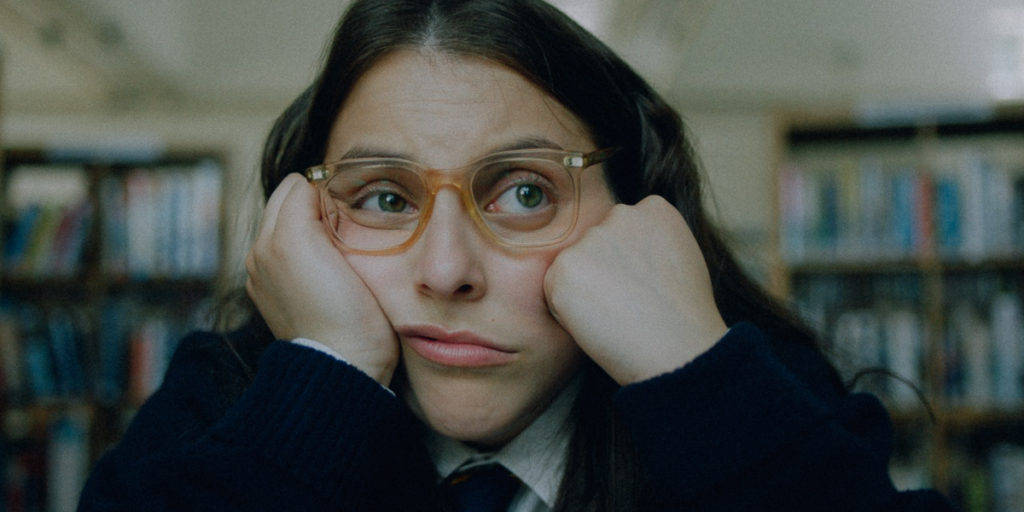With a background in documentaries, pop videos, and arts programs, British director Coky Giedroyc made her feature debut with “Stella Does Tricks,” starring Kelly Macdonald. Her BAFTA- and Emmy-winning projects include “Sound of Music Live,” “The Hour,” and “The Virgin Queen.” Giedroyc was most recently celebrated for her work on “Harlots.” “The Killing,” “Penny Dreadful,” “Seven Seconds,” and “Gypsy” are among her U.S. credits. Giedroyc served for four years on the board of Directors UK and is a mentor to young female filmmakers starting out in the industry.
“How to Build a Girl” will premiere at the 2019 Toronto International Film Festival on September 7.
W&H: Describe the film for us in your own words.
CG: “How to Build a Girl” is a quest. A rock-and-roll coming-of-age film. But uniquely, this one is about a girl.
It is hilarious, poignant, no holds barred, and tells the story of teenage Johanna, who picks herself up out of a bad nowhere post code, with nothing whatsoever going for her, and makes something big and beautiful and brilliant out of herself.
W&H: What drew you to this story?
CG: I love Caitlin Moran [who wrote the semi-autobiographical book on which the film is based and co-wrote the screenplay], her writing, and everything she stands for.
This film is hilarious and heartbreaking in equal measures.
Johanna, aged 16, makes mistakes, has sex with the wrong people, makes a mess out of a lot of things, but unlike almost every other film that tells that kind of story, she isn’t the victim, she doesn’t die — and actually, she bounces back as the most beautiful version of herself. The one she was always destined to be.
W&H: What do you want people to think about when they are leaving the theater?
CG: That you can fuck up multiple times in your teenage years, commit appalling fashion crimes, sleep with the wrong people, and behave like a total arse, but you can still pick yourself up, reinvent yourself, and everything will be ok.
I wish someone had said that to me at 16.
W&H: What was the biggest challenge in making the film?
CG: Making a film in 35 days on a really limited budget that delivers in scale and emotion and aesthetics what a film four times its size might do. There are a few musical set pieces — gigs, etc. — that were filmed live and were pretty tough to pull off.
W&H: How did you get your film funded? Share some insights into how you got the film made.
CG: Our film was financed by Film4, Lionsgate, Tango Entertainment, and Protagonist Pictures.
W&H: What inspired you to become a filmmaker?
CG: I always wanted to be an artist and got into art school, in fact, but then lost my nerve when I realized I couldn’t suffer a solitary fine artist’s life. I discovered the perfect art form for me — one that is collaborative, is based on so many creative, social interactions, where the art is bigger than the sum of all the parts — filmmaking. For me, it is a sublime way of being an artist.
W&H: What’s the best and worst advice you’ve received?
CG: Worst advice: “Don’t go to film school: you’ll be selling out.” I did go.
Best advice: “Have a sense of humor. Don’t take yourself too seriously.”
W&H: What advice do you have for other female directors?
CG: Have a sense of humor.
Prep fucking hard — better than any other director you know.
W&H: Name your favorite woman-directed film and why.
CG: “Blue Steel” by Kathryn Bigelow. It was the first film I saw which made me realize that I could do it — make films — and that they wouldn’t have to be issue-driven, naval-gazing, tub-thumping, exclusively female, but just really gripping, ambitious, brilliantly told stories that could have a really wide appeal and no one would know or care what gender the filmmaker was.
Bigelow is badass.
W&H: What differences have you noticed in the industry since the #MeToo and #TimesUp movements launched?
CG: I’ve noticed more female directors getting chances — particularly the ones just starting out. There seems to be a begrudging willingness to actually give them the occasional real gig. I am a fierce advocate of proper mentoring and I really hope that all this rhetoric does add up to proper job offers and not just political box ticking.
I’m cautiously optimistic.







